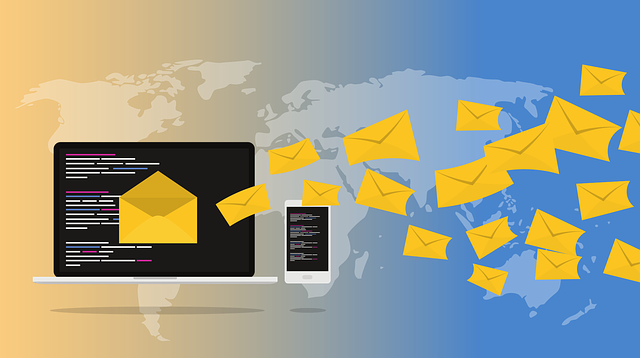Omnichannel customer engagement through chatbot automation powered by AI is transforming business efficiency. Chatbots streamline operations, enhance satisfaction, and drive growth by managing inquiries, providing recommendations, and guiding users. AI integration personalizes experiences, optimizes strategies, and frees human agents for complex tasks. This approach improves response times, boosts productivity, and fosters loyalty, with KPIs measuring success and guiding optimization.
In today’s digital landscape, seamless omnichannel engagement is key to driving customer satisfaction and business growth. Discover how chatbot automation revolutionizes this critical aspect by providing a unified experience across various touchpoints. This article explores the benefits of implementing chatbots, from enhanced user interactions to improved operational efficiency. Learn about strategies for effortless channel integration, ensuring a smooth transition for both customers and businesses alike.
- Understanding Omnichannel Customer Engagement
- Benefits of Chatbot Automation for Businesses
- Implementing Chatbots Across Channels Effortlessly
- Enhancing User Experience with Seamless Integration
- Measuring Success and Optimizing Chatbot Performance
Understanding Omnichannel Customer Engagement

Omnichannel customer engagement refers to the seamless interaction between customers and businesses across various channels, such as websites, mobile apps, social media, and messaging platforms. This integrated approach ensures that customers have a consistent and continuous experience regardless of the touchpoint they choose to engage with a brand. In today’s digital age, where consumers are constantly on the move between different devices and platforms, understanding omnichannel engagement is crucial for business success.
Chatbot automation plays a pivotal role in facilitating this seamless interaction. AI-powered chatbots can manage customer inquiries, provide product recommendations, guide users through sales funnels, and even facilitate post-purchase support across multiple channels. By leveraging chatbot automation, businesses can enhance operational efficiency, reduce response times, and improve customer satisfaction, ultimately driving higher conversion rates and revenue growth. The integration of AI in sales processes, such as using AI to personalize the customer journey or optimize pricing strategies within an ai funnel, further amplifies these benefits.
Benefits of Chatbot Automation for Businesses

Chatbot automation for business efficiency has become a game-changer in the digital landscape. Businesses can significantly enhance their operations and customer engagement by implementing AI-powered chatbots. These intelligent agents offer round-the-clock availability, ensuring that customers receive instant support and solutions to their queries or issues. By handling basic tasks and frequently asked questions, chatbots free up human agents to focus on more complex interactions, thus improving overall productivity.
Moreover, chatbot automation facilitates seamless omnichannel engagement. Customers can interact with the brand through various channels like website chat, messaging apps, or social media platforms, maintaining a consistent and integrated experience. This consistency not only improves customer satisfaction but also builds brand loyalty. An AI automation agency specializing in ecommerce AI can play a pivotal role in developing and optimizing these chatbots to deliver exceptional value and ensure business success.
Implementing Chatbots Across Channels Effortlessly

Implementing chatbots across various channels seamlessly is a game-changer for businesses aiming to enhance customer engagement and drive operational efficiency. With modern AI chatbot technology, companies can create a unified conversational experience that caters to customers’ preferences and behaviors. Whether it’s through website chats, social media messaging, or even SMS, these bots ensure consistent interaction without compromising on quality.
This omnichannel approach allows businesses to centralize their customer support and marketing strategies. A sales chatbot, for instance, can guide prospects through the buying process, while an AI chatbot optimized for customer service can handle queries and provide quick resolutions. By leveraging chatbot automation, companies can reduce response times, free up human agents for complex tasks, and ultimately improve overall business efficiency.
Enhancing User Experience with Seamless Integration

In today’s digital landscape, seamless omnichannel engagement is a must for businesses aiming to enhance user experience and drive business efficiency. Chatbot automation plays a pivotal role in achieving this by providing 24/7 availability, instant responses, and personalized interactions across various channels like websites, mobile apps, and messaging platforms. By integrating chatbots into existing systems, businesses can streamline customer support, reduce response times, and free up human agents to handle more complex issues.
Ecommerce automation, for instance, benefits significantly from chatbot technology. AI-powered funnels guided by chatbots can assist customers in product discovery, answer queries, and facilitate purchases, creating a frictionless shopping experience. This not only improves customer satisfaction but also increases conversion rates. Moreover, leveraging chatbots to handle routine tasks allows businesses to optimize their operations, enabling them to focus on strategic initiatives while ensuring every customer interaction is managed efficiently and effectively.
Measuring Success and Optimizing Chatbot Performance

Measuring success is a crucial aspect of chatbot automation implementation, as it allows businesses to optimize their strategies for enhanced customer engagement. Key performance indicators (KPIs) such as response time, accuracy rates, and user satisfaction levels should be tracked to ensure the AI chatbot effectively supports omnichannel efforts. By analyzing these metrics, companies can identify areas for improvement and make data-driven decisions. For instance, a sales chatbot might need adjustments if it fails to provide accurate product information consistently or takes too long to respond during peak hours.
Regular optimization is essential to keep up with evolving customer expectations and market trends. Continuous learning algorithms that adapt based on user interactions can significantly improve chatbot performance over time. Businesses should encourage user feedback, monitor conversation analytics, and stay agile in their approach to fine-tune the chatbot’s capabilities, ensuring it remains a powerful tool for business efficiency and seamless omnichannel engagement.
Chatbot automation is transforming omnichannel engagement, offering businesses an efficient way to enhance customer interactions. By seamlessly integrating across multiple channels, these bots provide 24/7 support, improve response times, and deliver personalized experiences. As businesses strive for operational excellence, leveraging chatbot automation presents a compelling opportunity to streamline processes, boost productivity, and elevate the overall customer journey.
